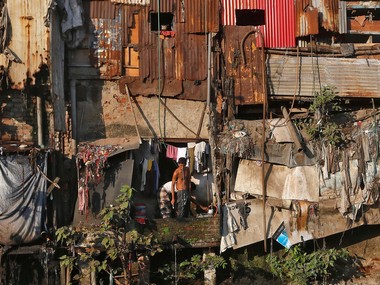For centuries, cities around the world have been sites of devastating epidemics that ripped through crowded neighbourhoods killing people in large numbers. Cities are dense and better connected to the outside world through ports, railways, and airports, making it easier for highly contagious diseases like plague and cholera to thrive. [caption id=“attachment_4177905” align=“alignleft” width=“380”]  Dharavi slum in Mumbai. Reuters[/caption] The period during and after the industrial revolution was particularly grim in terms of the incidence and devastation caused by epidemics since living conditions were extremely conducive for the spread of disease and the science of germ theory was yet unknown. As a result, governments were ill-equipped to prevent outbreaks from occurring. Where city governments were successful in preventing frequent epidemics, urban living and the physical form of cities changed in fundamental and lasting ways. Some of the methods of dealing with epidemics that were tried and tested by city governments in those periods are still the best ways available to us today. It is therefore worth revisiting previous instances of epidemics and draw out lessons in civic administration that can be replicated. The first lesson seems to be that of setting up new departments or bodies with powers to coordinate across sectors with the mandate of providing rapid response in the short run as well as looking into solutions for prevention in the medium and long run. In the mid-nineteenth century in New York City, repeated outbreaks of yellow fever and cholera resulted in the creation of a Council of Hygiene and Public Health. One of the important tasks undertaken by the Council was a detailed survey of living conditions in every neighbourhood. This led to the creation of the Metropolitan Board of Health with the objective of improving these living conditions and preventing further outbreaks of cholera. The board exercised powers ranging from quarantining patients to regulating and banning activities that were sanitation hazards. **Click here for Coronavirus Outbreak LIVE Updates** In the city of Bombay, the Bombay Improvement Trust was created under the Bombay Act IV of 1898 to deal with the bubonic plague that had erupted in the city’s dense working-class quarters. It undertook the task of decongesting neighbourhoods. The Epidemic Diseases Act 1897 – a law that is still in force today – was passed in order to give governments special powers to enforce regulations that could swiftly tackle the spread of epidemics. The second lesson is to look at public health in tandem with sanitation, housing, and solid waste management. What eventually stopped frequent outbreaks from occurring was putting in place the necessary infrastructure to provide clean water and air, and hygienic living conditions. The Croton Aqueduct was created since existing wells and tanks being used by people were polluted. The Central Park was planned around the receiving reservoir of the aqueduct for New Yorkers to be able to access open space. In the early 20th century, the New York City Housing Authority was created to provide public housing for the poor in order to prevent living in cramped and unsanitary conditions. In Mumbai, the Bombay Improvement Trust widened the roads running east to west through dense neighbourhoods in order to allow the sea breeze to pass through them. It created public housing in the form of single room tenements with common public toilets for the city’s working classes. It also undertook planning for residential neighbourhoods at the outskirts of the erstwhile city limits. These areas were well laid out, were serviced by public transport and had sufficient amenities such as public parks. The world today looks very different from the world of the 19th and early 20th centuries. And yet, there are parts of the developing world where city-dwellers continue to remain badly served in terms of basic sanitation, drinking water, and decent housing. The current COVID-19 pandemic, and any other epidemics that occur in the future, are likely to wreak havoc in these cramped areas packed with informal housing. As more and more cases are being discovered in these areas, the challenges of isolating individuals and ensuring that standards of hygiene are being met loom large. As an immediate fix, municipal governments have employed various measures to respond tactically to these issues by coordinating with NGOs and networks of slum-dwellers for coming up with workable solutions, taking over the logistics of organising activities like providing clean water to these tenements and creating makeshift quarantine facilities with certain sanitary standards with varying degrees of success. Pandemics, even though a rare occurrence in modern times, tend to cause devastation at such a scale so as to have a disproportionately lasting impact on our social and economic lives. Hence, long term measures are critical. For this, city governments need to do some old-fashioned things like fix water supply issues, manage solid waste, and make conditions livable for the very poor. Finally, governments need to be able to leverage the biggest advantage that we have over the past – access to information, technology, and data. This requires investing in systems for collecting and publishing granular data on inputs such as healthcare facilities, outcomes such as water supply, sanitation, housing conditions, and tracing disease hotspots over time and space. The ability to quickly overpower disease outbreaks through the use of science, innovation and technology had led governments to neglect their role in effective prevention of such epidemics. By putting the focus back on service delivery and better sanitation and housing conditions in our overcrowded neighbourhoods, they can be better prepared when the next pandemic strikes.
The ability to quickly overpower disease outbreaks through the use of science, innovation and technology had led governments to neglect their role in effective prevention of such epidemics.
Advertisement
End of Article


)

)
)
)
)
)
)
)
)



